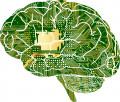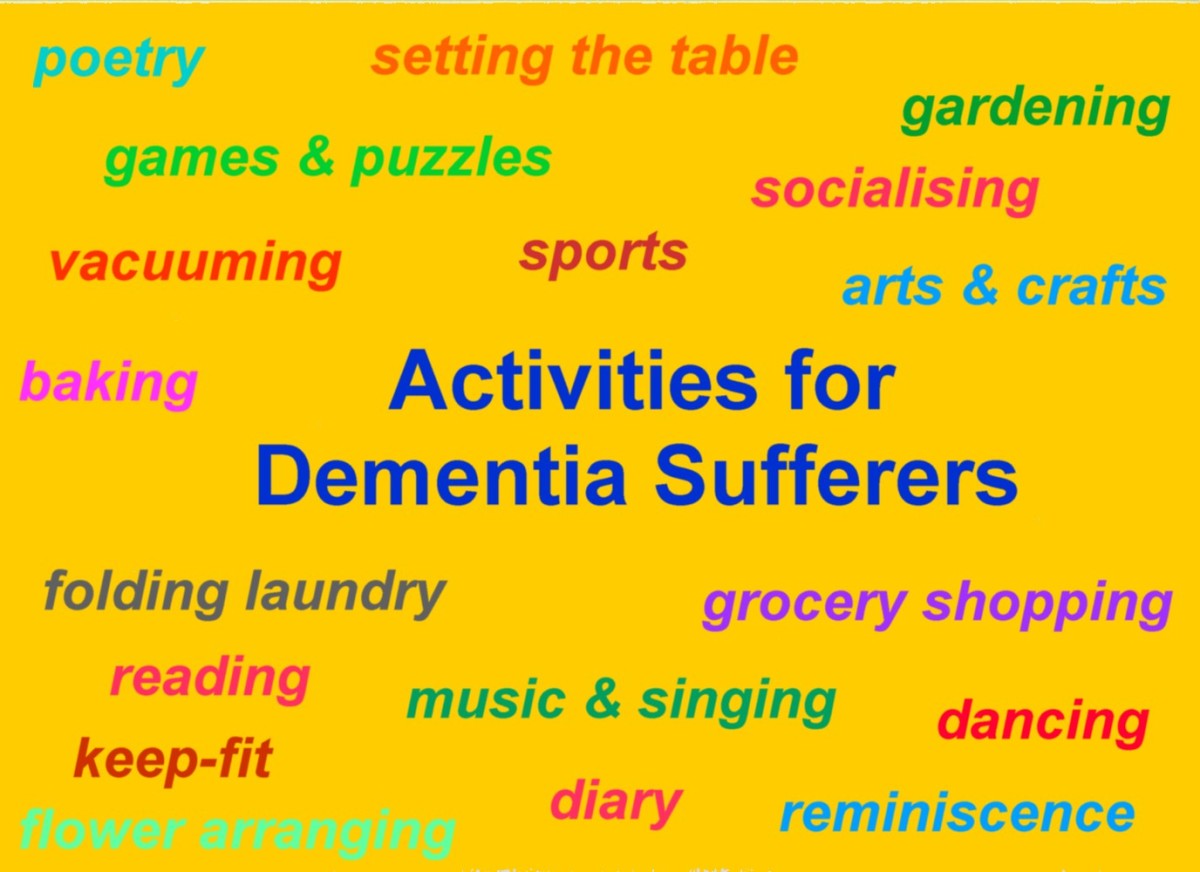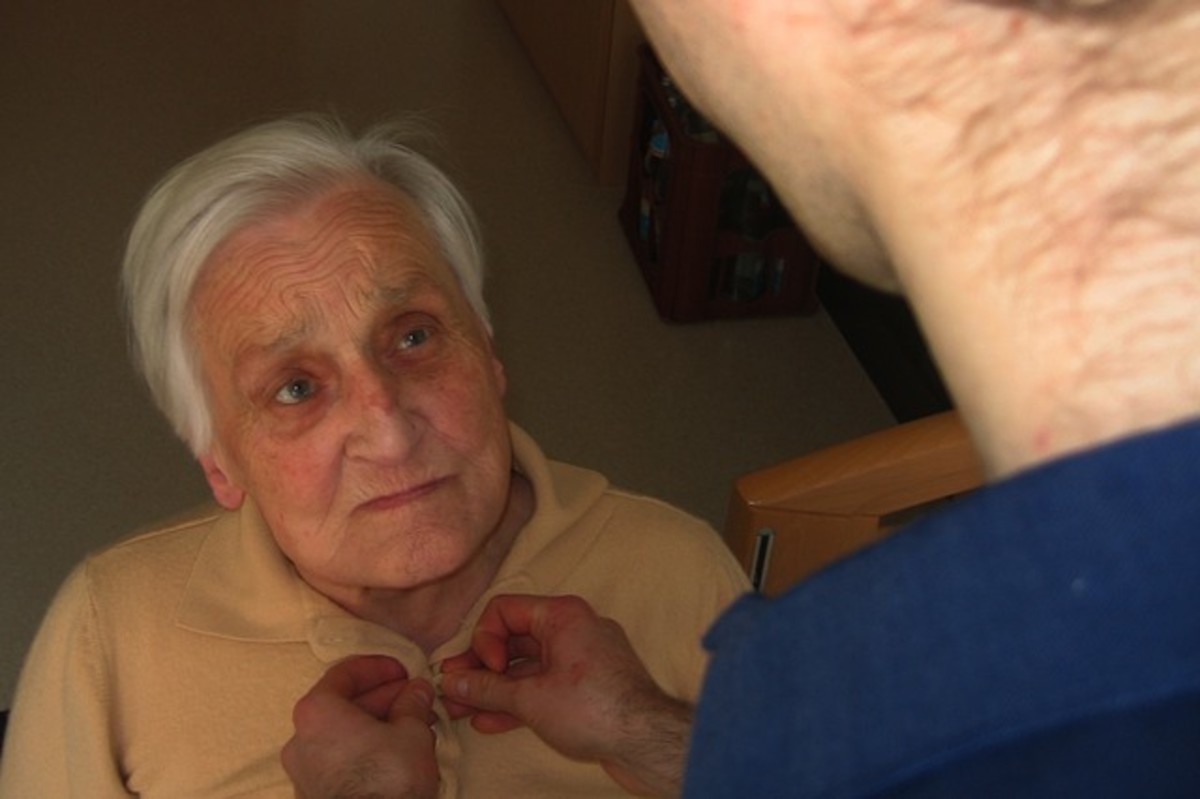Understanding Alzheimer's & Dementia

It can be very sad to watch a loved one develop and live with Alzheimer’s disease. I have personally had 2 great-grandparents with the illness. It can be difficult to differentiate the disease from regular dementia, that many elderly people experience, but there is a significant difference, especially once the disease has progressed.
About 4-5 million people in the United States have some degree of dementia currently.
It affects 30-50% of people older than 85 years, and is considered to be a normal part of the aging process. It is the leading reason for placing elderly people in nursing homes and assisted living facilities, as many people with dementia eventually become totally dependent on others for their care. The condition can be remedied with proper medical treatment, in some cases, but in others, it is a permanent situation, and usually gets worse over time.
Loss of short and long-term memory is the biggest component of the disorder, but other symptoms are loss of intellectual functioning including use of language and numbers, loss of awareness of what is going on around him or her, and the ability to use sound judgment, solve problems, and think abstractly.
As people age, memory loss and loss of brain function is normal to a certain extent. Many elderly people fear they are developing dementia when they can’t find their glasses or remember a name. These problems are common, and are usually the result of normal deterioration of mental processes, although forgetfulness can also be the first sign of dementia.
Many different things can cause dementia, and sometimes different diseases or conditions’ symptoms can overlap, so it can often be difficult to determine an exact cause. Stroke, head injury, drugs, nutritional deficiencies, as well as various diseases and infections can all cause the disorder. In most cases, the dementia permanently damages brain tissue, at which time the symptoms and damage are irreversible and permanent. When dementia damages the brain tissue, there can be a variety of underlying causes, with the most common being Alzheimer’s disease.
Alzheimer’s is the most common cause of dementia, accounting for about half of all cases.
Alzheimer’s not only affects memory, thinking, and behavior, but also causes problems with language, decision making ability, judgment, and personality. It is thought that the disease is genetic and/or hereditary, in that having a close blood relative (brother, sister, parent) who has had the disease, puts you at greater risk to contract it as well. It is thought that longstanding high blood pressure and being of the female gender are also risks.
Early onset Alzheimer’s symptoms appear before age 60. This is much less common than the late onset Alzheimer’s which develops in people over age 60. Early onset disease typically runs in families and progresses rapidly.
It is important to understand the difference between Mild Cognitive Impairment (MCI) and Alzheimer’s disease. MCI is the stage between normal forgetfulness due to aging, and the development of Alzheimer’s. People with MCI have mild problems with thinking and memory, which do not interfere with everyday activities. Not everyone with MCI develops Alzheimer’s. Symptoms of MCI can include forgetting recent events or conversations, difficulty solving problems, taking longer than usual to perform difficult activities, and difficulty performing more than one task at a time. Early Alzheimer’s symptoms include language problems, misplacing items, personality changes, loss of social skills, getting lost in familiar routes, losing interest in things previously enjoyed, changes in mood, difficulty performing tasks that used to come easily.
As the disease progresses, symptoms are more obvious, and interfere with daily life and quality of life.
These symptoms can include forgetting events in your own life history, losing awareness of who you are, a change in sleeping patterns, difficulty reading or writing, loss of ability to recognize danger, withdrawal from social contact, speaking in confusing sentences, having hallucinations, being argumentative, having violent behavior, and depression. Eventually, a person with Alzheimer’s will lose all ability to care for themselves including basic functions such as using the bathroom, and eating. They will also no longer be able to understand language or recognize family members.
Sadly, there is no cure for Alzheimer’s disease.
The goal for any treatment plan is to slow the progression of the disease (although difficult), manage behavior problems, modify the home environment, and support family members caring for the patient. The only drugs available are used to slow the rate at which symptoms become worse, and can often times be ineffective. Some believe that certain vitamins and supplements help minimize the progression of symptoms. These include folate, vitamin B12, and vitamin E. However, there is no scientific evidence this prevents or slows the disease. The herb ginko biloba has also been thought to prevent or slow the development of dementia, but again, no strong evidence has proven this yet.
The severity and speed of progression of the disease is different in each person. A quick development of the disease can often times lead to a quick progression, sadly. Typically patients with Alzheimer’s die earlier than normal, however, patients have been known to live with the disease for decades. The end years of the patient’s life, and the later stages of the disease can often be difficult, as the person becomes completely immobile, and totally disabled. Death usually occurs from an infection or a failure of another body system.
There is currently no way to prevent Alzheimer’s, but there are some things that can be worth trying, for now, especially if you have a family history of dementia or Alzheimer’s. Always consult your doctor before you start a new practice or treatment. Consuming a low-fat diet is recommended, as well as increasing intake of darkly colored fruits and vegetables and cold-water fish rich in omega-3 fatty acids. Make sure you maintain a normal blood pressure, and stay mentally and socially active throughout life. Additionally, drugs used for high cholesterol have been thought to have some success at lowering the risk for Alzheimer’s.
It can be quite difficult to be the loved one of an Alzheimer’s patient.
Living with someone as they slowly stop being able to care for themselves can be physically and emotionally draining. In addition, the thought of a loved one forgetting who you are can be devastating. There are many support groups out there, and counselors that specialize in dealing with this disease. It is always healthy to talk about your feelings and emotions and not keep things bottled up inside. It can be extremely heartbreaking to watch someone so close to you such as a spouse, parent, or sibling, forget their memories with you, and forget you all together. Don’t go through it alone.








